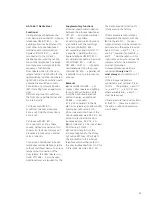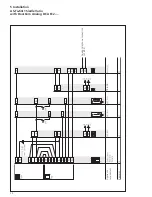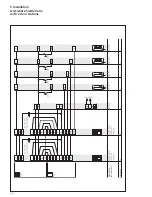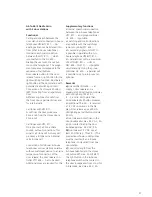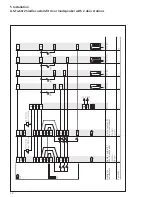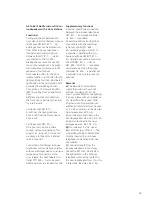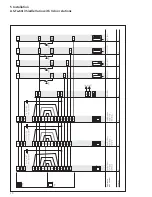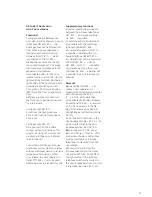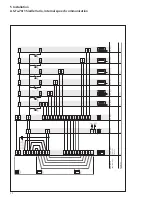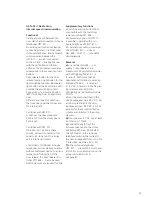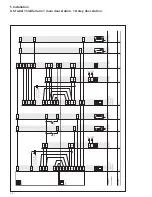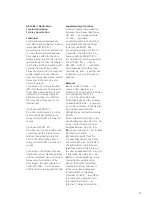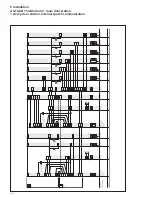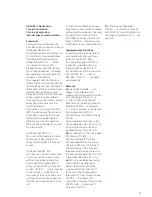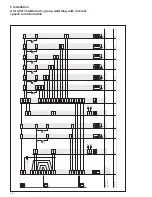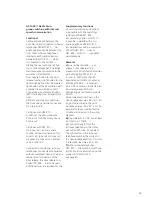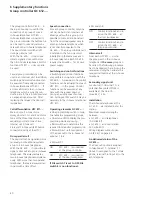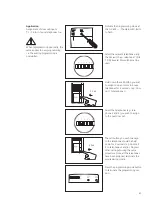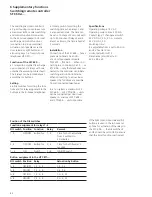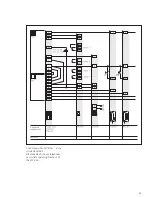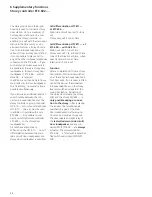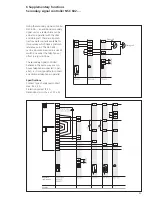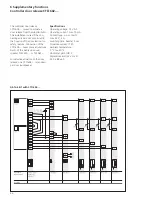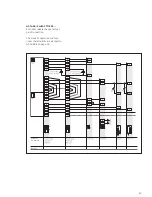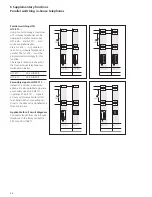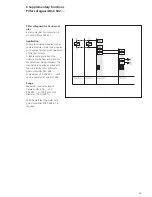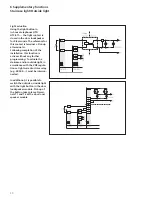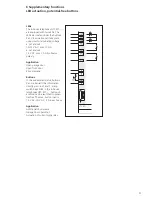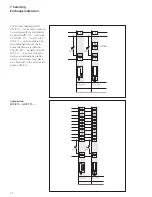
37
AS-Ta-85/1 Siedle Vario
1 main door station,
1 storey door station,
internal speech communication
Functional
Calling and speech between the
door station and connected in-house
telephones HTS/HTC 811-…
An existing call cannot be listened in
to from other in-house telephones.
Internal speech communication
between the HTC 811-…, which
is connected to the GC 612-…
Dialling the user with the call but-
tons on the telephones. The assign-
ment sequence corresponds to the
sequence of call buttons.
Door release button for the door
release function, light button for the
light switching function. Illuminated
light button at the door station with
potential-free switching contact.
Storey door station for the functions
calling, speech and door release
from one storey door station. Several
storey door stations can be con-
nected in parallel.
Connection of a storey call button
(ERT) for placing calls from an addi-
tional door is possible, but not yet
indicated in this wiring diagram.
Different ring tones for calls from
the front door, apartment door and
for internal calls.
Call tones with HTS 811-…
On a door call/storey call, a 3-tone
call sounds. When calling from a
storey call button ERT a 2-tone call
sounds.
Call tones with HTC 811-…
On a door call, a 3-tone call sounds,
on a storey call the 3-tone chime,
without connecting terminal G a
3-tone call. When calling from a
storey call button ERT a 2-tone call
sounds. HTC 811-… units connected
to the GC 612-… signal the first
two tones of the 3-tone chime on a
call from the storey door station, an
internal call is signalled by a 3-tone
call.
Connection of additional in-house
telephones or door stations possible
without switchover device. To ensure
tamper-proof connection of the
door release, the door release con-
troller CTÖ 602-… has to be used.
Additional cores are required for this.
Supplementary functions
• Switching and control functions
are possible with the switching/
remote controller SFC 602-…
• A secondary signal unit NS 711-…
is possible in parallel with an in-
house telephone HTS/HTC 811-…
• A parallel door call to a maximum
of 2 HTS/HTC 811-… units or
NSC 602-…/NS 711-… is possible
simultaneously.
Remarks
a)
Line rectifier NG 602-… can
supply 1 door release and a
maximum of 50 call button modules
with LED lighting TM 612-1, -2,
-3, and -4. With more than 50
illuminated call button modules, an
additional TR 603-… is required.
• 12 V AC consumers in the AS plan:
Door release appr. 600 mA
LED lighting per call button module
20 mA
• Door release contact load in the
door loudspeaker max. 24 V AC, 2 A
• Light contact load in the door
loudspeaker max. 24 V AC, 2 A
b)
Door release 12 V AC, use at least
20 Ohm (e.g. TÖ 615-…)
c)
Conductor length from the
in-house telephone to the storey
call button ERT max. 50 m/164 ft.
The light button in the in-house
telephone switches the contact in
the door loudspeaker from c to Li for
0.8 seconds, load max. 24 V, 2 A.
e)
If an in-house telephone is only
connected to one storey door
station, the dotted connection
must be made from terminal 11
at the main door loudspeaker to
terminal WT of the storey controller
ETC 602-… In addition, the
connection is required from terminal
W0 ETC 602-… to terminal 11
storey door station.
f)
In the in-house telephones
HTC 811-… DIL switch 5 must be
set to OFF. For more information on
the group controller GC 612-… see
page 40.
Summary of Contents for AS-Ta-64/1
Page 1: ...System Manual 1 n technology Issue 2013 ...
Page 7: ...7 ...
Page 16: ...16 5 Installation AS Ta 64 1 Siedle Vario Remarks Appliance requirement ...
Page 20: ...20 5 Installation AS Ta 64 1 Siedle Classic Remarks Buttons Appliance requirement ...
Page 22: ...22 5 Installation AS Ta 64 1 Siedle Steel Remarks Buttons Appliance requirement ...
Page 26: ...26 5 Installation AS Ta 64 2 Siedle Vario with 2 door stations Remarks Appliance requirement ...
Page 30: ...30 5 Installation AS Ta 64 3 Siedle Vario with 3 door stations Remarks Appliance requirement ...
Page 53: ...53 ...

